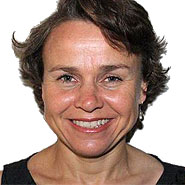The short secret to higher pay, promotion


AAP
With the cost of university degrees set to skyrocket, short courses could soon be the way to go for those wanting to upskill or start a new career.
In fact, a Melbourne executive consultant with several short courses under his belt swears by them and says he now looks for them on CVs when hiring.
Roads Less Travelled Executive Services director Greg Malone has an MBA from Monash University and has also completed short management courses at Monash and Melbourne universities, North Western University (Kellogg Business School) in the US and IMD (Institute of Management Development) in Switzerland.
An experienced employee and employer, Mr Malone looks for short courses on CVs as it shows the applicant is up to date and has focused on a particular area. “They’re fantastic,” he says.
• How to stop spending thousands at work
• Why university is not essential to success
• Why you’ll end up poorer than your parents
Australian tertiary institutions offer an array of “mini-degrees” across most disciplines, including business, humanities, arts, engineering, environmental science, law and computing.
They range in cost from a few hundred dollars for a basic TAFE course to thousands for executive business programs at prestigious universities. Many are not subsidised, so already involve full fees.
In 2014, for example, the TAFE NSW annual government subsidised course fees started at $504 for apprentices and trainees and $534 for a short course or Certificate I.
At the other end, a three-day Melbourne University-run Melbourne Business School Mt Eliza Executive Education course on innovation or resilient leadership cost $4800.
Some say “mini-degrees” might also cost more when the Federal Government deregulates university undergraduate degree fees in January 2016.
• Click on the owl to see what will happen to short courses under university deregulation:
Boost your job prospects
Mr Malone says short courses are a great way to update skills and focus on what you really need, rather than a full degree that often includes elements that may not be relevant to your current employment situation.
He says “mini-degrees” allow people to dip their toe into a new area and the quality of Australia’s TAFE and university courses was as good if not better than offshore training.
Set yourself apart
Sydney Career Coaching career and executive coach Tina Monk has been advocating mini-degrees for years and believes they are a viable alternative with full degrees becoming so expensive.
“If people are to get into work more quickly because of lack of government support, they need to get skills and qualifications more quickly and at a lower cost,” she says.
Adecco Australia & New Zealand marketing and communications director Rick Khinda said recruiters and companies could consider short courses, but ultimately the right candidate came down to “the three Ts”: Are they technically suitable, talented and team oriented?
“The right candidate for the job must fit in with the company’s culture and vision and while a short course can help improve specific knowledge or skills it needs to be very relevant to the job to have a strong impact,” he said.
“It is likely that a short course can set a candidate apart from other applicants as long as they also have the required experience, underlying technical knowledge and company compatibility”.
Choose the right course
So how do you find a course that suits your needs, budget and CV? National Tertiary Education Union National President Jeannie Rea said students should compare courses to similar offerings at other institutions and ask themselves:
• Does it include contact with support staff? (Some don’t)
• Is it cost effective?
• Will it genuinely enhance add to your CV?
• Would potential recruiters/employers value it?
• Is it a recognised qualification from an accredited institution?
• Are the teaching staff qualified and experienced?
• Is there is a required period of placement, is that organised by the institution?









